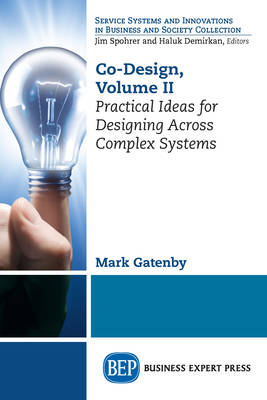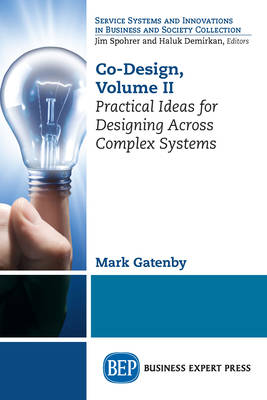
- Retrait gratuit dans votre magasin Club
- 7.000.000 titres dans notre catalogue
- Payer en toute sécurité
- Toujours un magasin près de chez vous
- Retrait gratuit dans votre magasin Club
- 7.000.000 titres dans notre catalogue
- Payer en toute sécurité
- Toujours un magasin près de chez vous
Co-Design, Volume II
Practical Ideas for Designing Across Complex Systems
Mark Gatenby
Livre broché | Anglais
30,95 €
+ 61 points
Description
This book is about understanding the nature of design and organization in complex living systems.
Design is everywhere in our lives-but the nature of complex systems means that few people feel empowered or equipped to design better futures. Although the places we live are full of material objects, they only become meaningful as they are used and experienced by people.
The author looks at design as a way of thinking and acting. Design becomes an open-ended conversation with the world around us. The text is also about the shifting social relations of design-moving from an emphasis on individual engineers and designers toward the participatory process of making sense of tools to improve our lives: we call this process co-design.
Spécifications
Parties prenantes
- Auteur(s) :
- Editeur:
Contenu
- Nombre de pages :
- 182
- Langue:
- Anglais
Caractéristiques
- EAN:
- 9781948198745
- Date de parution :
- 29-10-18
- Format:
- Livre broché
- Format numérique:
- Trade paperback (VS)
- Dimensions :
- 152 mm x 229 mm
- Poids :
- 254 g







